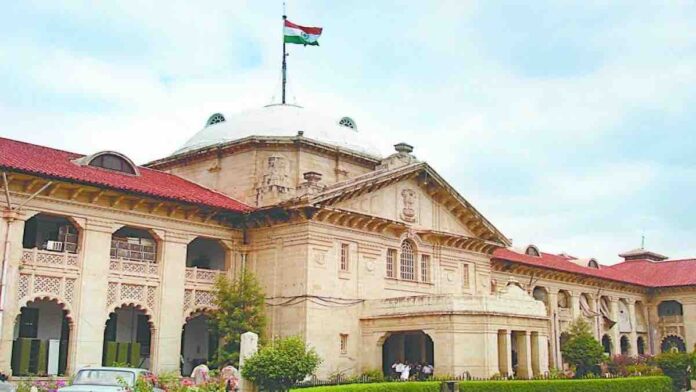The Allahabad High Court has recently expressed deep concern regarding the current condition of children’s homes in Uttar Pradesh (UP). Not only have the children living in these homes been deprived of nutritious food, but they have also been denied access to fresh air and sunlight.
The court has deemed the conditions of these homes to be worse than prisons, stating that they violate the fundamental rights of the children under Article 21 of the Indian Constitution. Consequently, the court has directed the UP government to take immediate action in rectifying the shortcomings of these children’s homes.
During the next hearing of the case, the Principal Secretary of the Women and Child Development Department in UP will be required to inspect the children’s homes, provide information on the number of children and facilities available, and submit a personal affidavit outlining the measures taken to improve their conditions.

The division bench of Chief Justice Pritinkar Diwakar and Justice Ajay Bhanot issued these orders after taking suo motu cognizance on the public interest litigation (PIL). Nine points have been suggested by the court to enhance the conditions of children’s homes in UP. The court has emphasized the importance of implementing these suggestions immediately to promote the all-round development of the children.
Justice Ajay Bhanot, who personally inspected the children’s homes in UP, has been mentioned by name in the court’s order. The court highlighted the numerous deficiencies discovered during the inspection, which directly violate the children’s fundamental rights as guaranteed by Article 21 of the Indian Constitution. These children belong to the most vulnerable sections of society, which requires urgent attention from the government to address the shortcomings prevalent in children’s homes.
According to the court, the conditions within these homes prevent sunlight from entering, hinder access to fresh air, and lack playgrounds or open spaces. Such a lifestyle severely impedes the development of the children. The court compared the conditions to those of a prison, expressing its intolerance towards the state’s indifference.
The court further highlighted existing directions issued by the Juvenile Justice and POCSO Committee, which recommend the immediate relocation of children’s homes with an excessive number of children and insufficient facilities. However, the state government has yet to respond to these concerns. Therefore, the court has directed the UP government to relocate these homes to more affluent areas that provide adequate facilities for sports and outdoor activities. This measure will be temporary until standard parameters are established for these homes.
The court raised questions regarding the competency of the staff and supervisors assigned to these children’s homes, noting their inadequate training. This lack of professionalism negatively impacts the children’s mental health, rendering the environment of these homes harmful instead of beneficial. The court also emphasized the urgent need to revise the budget allocation for necessary items, including food, as it has remained unchanged for several years, hindering the children’s development.
Also Read
Education facilities were highlighted as an integral aspect, requiring continuous monitoring to identify and address any deficiencies in the children’s education. Emotional and physical development were also emphasized, considering the children’s separation from their families. The court urged the development of a transformative environment and activity system in consultation with professional organizations. Formal education and vocational training were stressed, aiming to facilitate future job prospects and connections in the market. Regular education must also be improved.
The court reminded the UP government of its responsibility to ensure the children’s right to free and compulsory education, which is both a statutory right and a fundamental right recognized by the Constitutional Court. The court recommended enrolling the children in nearby reputable schools and suggested that the state government waive the requirement for an income certificate considering the circumstances of the children’s families.







